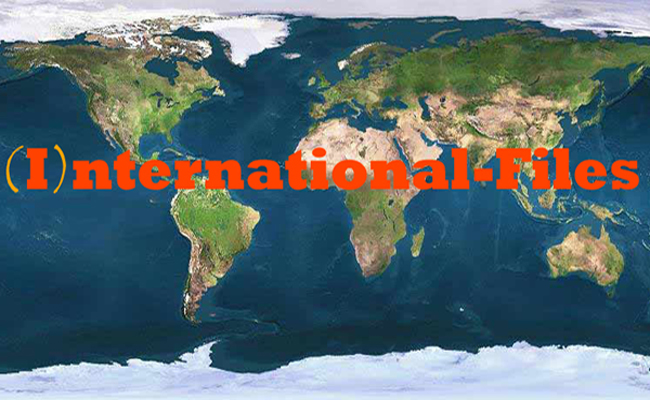 Prime Minister Herman Van Rompuy has to date been careful when it comes to stating overly explicit visions with regard to the European presidency. His low-key profile is, after all, his biggest asset when it comes to scooping the post. But Thursday night behind the closed doors of a Bilderberg Group gathering at the Castle of the Valley of the Duchess, he finally showed his hand, says De Tijd newspaper. The Bilderberg Group is a circle of elite figures from the international political, finance and corporate worlds that hold annual invitation-only meetings. Van Rompuy told the elite club that the European government leaders are increasingly becoming proponents of Europe tapping off green income, so that the contributions of member states to the EU can be decreased. The economic revival will not suffice, said Van Rompuy, when it comes to eliminating the massive budgetary deficits in numerous member states. His assertion did not go unchallenged, and an Italian guest even put some tricky questions to him. De Tijd says that his pronouncement on a European green tax is already doing the rounds in the European capitals. It might rapidly become a weapon with which to attack his candidacy, the newspaper suggests. Van Rompuy accepted the invitation of Etienne Davignon to address the gathering because the discretion of the Bilderberg Group has attained legendary status, and what is said at its meetings has never leaked out. Van Rompuy was also asked what role the first president of Europe should play. He responded that Europe needs a guiding president rather than a leading one.
Prime Minister Herman Van Rompuy has to date been careful when it comes to stating overly explicit visions with regard to the European presidency. His low-key profile is, after all, his biggest asset when it comes to scooping the post. But Thursday night behind the closed doors of a Bilderberg Group gathering at the Castle of the Valley of the Duchess, he finally showed his hand, says De Tijd newspaper. The Bilderberg Group is a circle of elite figures from the international political, finance and corporate worlds that hold annual invitation-only meetings. Van Rompuy told the elite club that the European government leaders are increasingly becoming proponents of Europe tapping off green income, so that the contributions of member states to the EU can be decreased. The economic revival will not suffice, said Van Rompuy, when it comes to eliminating the massive budgetary deficits in numerous member states. His assertion did not go unchallenged, and an Italian guest even put some tricky questions to him. De Tijd says that his pronouncement on a European green tax is already doing the rounds in the European capitals. It might rapidly become a weapon with which to attack his candidacy, the newspaper suggests. Van Rompuy accepted the invitation of Etienne Davignon to address the gathering because the discretion of the Bilderberg Group has attained legendary status, and what is said at its meetings has never leaked out. Van Rompuy was also asked what role the first president of Europe should play. He responded that Europe needs a guiding president rather than a leading one.(Flanders Today)
----------------------------------------------------------------------------------
The man tipped to be Europe’s first president is already considering new EU taxes to fund the rising cost of Brussels and the welfare state.
Herman Van Rompuy, the Belgian Prime Minister, broke his silence before Thursday’s summit to choose the president — but only at a meeting of the secretive Bilderberg group of top politicians, bankers and businessmen.
Mr Van Rompuy’s contentious remarks were aired privately amid the grand surroundings of the Castle of the Valley of the Duchess near Brussels. The château hosted the talks on the Treaty of Rome in 1957 that launched the European Union.
His office released parts of his speech in which he talked of funding social welfare from new green taxes and went on to discuss “financing levies at European level”, which his spokesman said later was similar to Gordon Brown’s call for an international tax on financial transactions.
The funding of the EU was discussed further after his speech, according to Flemish newspapers, but his office refused to give more details. Mr Van Rompuy remains the favourite for the position of president of the European Council — other contenders include Tony Blair — to be chosen when the 27 EU leaders meet in Brussels in two days’ time.
Mr Van Rompuy’s Bilderberg intervention will alarm non-federalist countries such as Britain and Denmark, which have long opposed giving the EU tax-raising powers and breaking the link with national funding.
Newer member states, already angry at the opaque process of choosing a president, are unlikely to be impressed at the secretive forum used by Mr Van Rompuy to talk about his European vision.
“The financing of the welfare state, irrespective of the social reform we implement, w ill require new resources,” Mr Van Rompuy told European and American guests, who included Henry Kissinger. The former US Secretary of State is cited as the inspiration for an EU president following his reported remark: “Who do I call when I want to call Europe?”
ill require new resources,” Mr Van Rompuy told European and American guests, who included Henry Kissinger. The former US Secretary of State is cited as the inspiration for an EU president following his reported remark: “Who do I call when I want to call Europe?”
Mr Van Rompuy added: “The green fiscal instrument is one possibility although an ambiguous one: this type of regulatory tax should eventually become redundant. But the possibility of financial levies at European level needs to be seriously reviewed and for the first time ever, the big countries in the Union are open to this.”
EU federalists were delighted to hear Mr Van Rompuy talk of European taxes.
Andrew Duff, the Liberal Democrat MEP and president of the Union of European Federalists, said: “He is a federalist and federalists believe in that approach. We have got to have a reform of the financial system. We have also got to grow the size of the EU budget to reflect the growth of competences that are in the Lisbon treaty, such as foreign and security policy, a common energy policy and climate change measures.” Britain is traditionally opposed to EU-wide tax proposals, despite Mr Brown’s recently proposed “Tobin tax” – an international levy on financial transactions as proposed by James Tobin.
William Hague, the Shadow Foreign Secretary, said: “Britain would not be the only EU country that would find a proposal to give the EU tax-raising powers totally unacceptable. Advocacy of such a policy is not a fruitful use of anyone’s time."
(TimesOnline)
Passo e chiudo.
FRA
----------------------------------------------------------------------------------
The man tipped to be Europe’s first president is already considering new EU taxes to fund the rising cost of Brussels and the welfare state.
Herman Van Rompuy, the Belgian Prime Minister, broke his silence before Thursday’s summit to choose the president — but only at a meeting of the secretive Bilderberg group of top politicians, bankers and businessmen.

Mr Van Rompuy’s contentious remarks were aired privately amid the grand surroundings of the Castle of the Valley of the Duchess near Brussels. The château hosted the talks on the Treaty of Rome in 1957 that launched the European Union.
His office released parts of his speech in which he talked of funding social welfare from new green taxes and went on to discuss “financing levies at European level”, which his spokesman said later was similar to Gordon Brown’s call for an international tax on financial transactions.
The funding of the EU was discussed further after his speech, according to Flemish newspapers, but his office refused to give more details. Mr Van Rompuy remains the favourite for the position of president of the European Council — other contenders include Tony Blair — to be chosen when the 27 EU leaders meet in Brussels in two days’ time.
Mr Van Rompuy’s Bilderberg intervention will alarm non-federalist countries such as Britain and Denmark, which have long opposed giving the EU tax-raising powers and breaking the link with national funding.
Newer member states, already angry at the opaque process of choosing a president, are unlikely to be impressed at the secretive forum used by Mr Van Rompuy to talk about his European vision.
“The financing of the welfare state, irrespective of the social reform we implement, w
 ill require new resources,” Mr Van Rompuy told European and American guests, who included Henry Kissinger. The former US Secretary of State is cited as the inspiration for an EU president following his reported remark: “Who do I call when I want to call Europe?”
ill require new resources,” Mr Van Rompuy told European and American guests, who included Henry Kissinger. The former US Secretary of State is cited as the inspiration for an EU president following his reported remark: “Who do I call when I want to call Europe?”Mr Van Rompuy added: “The green fiscal instrument is one possibility although an ambiguous one: this type of regulatory tax should eventually become redundant. But the possibility of financial levies at European level needs to be seriously reviewed and for the first time ever, the big countries in the Union are open to this.”
EU federalists were delighted to hear Mr Van Rompuy talk of European taxes.
Andrew Duff, the Liberal Democrat MEP and president of the Union of European Federalists, said: “He is a federalist and federalists believe in that approach. We have got to have a reform of the financial system. We have also got to grow the size of the EU budget to reflect the growth of competences that are in the Lisbon treaty, such as foreign and security policy, a common energy policy and climate change measures.” Britain is traditionally opposed to EU-wide tax proposals, despite Mr Brown’s recently proposed “Tobin tax” – an international levy on financial transactions as proposed by James Tobin.
William Hague, the Shadow Foreign Secretary, said: “Britain would not be the only EU country that would find a proposal to give the EU tax-raising powers totally unacceptable. Advocacy of such a policy is not a fruitful use of anyone’s time."
(TimesOnline)
Passo e chiudo.
FRA















